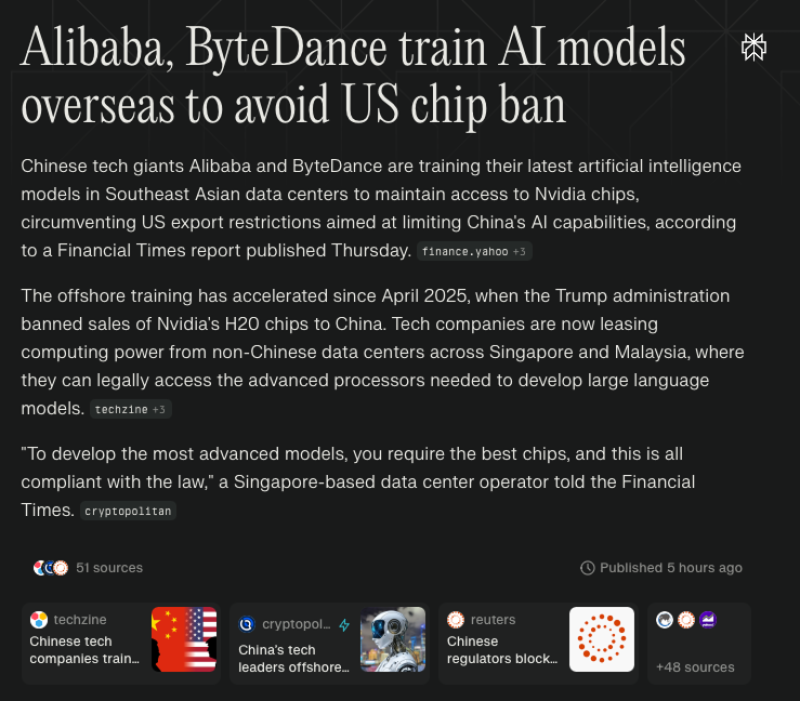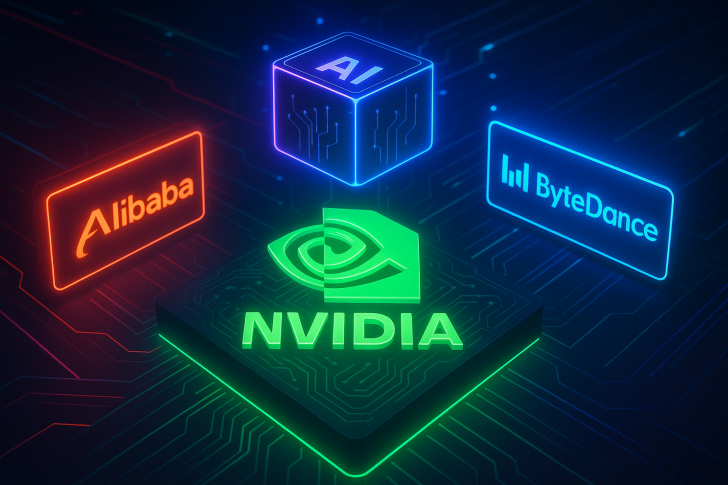⬤ After the United States banned H20 GPU sales to China in April 2025, Alibaba besides ByteDage moved their AI model training to Southeast Asia. The companies now run their latest large scale training projects from offshore data centers, which allows them to keep using the advanced Nvidia processors they need to develop state-of-the-art AI systems.

⬤ Both tech giants lease computing power from data center operators in Singapore or Malaysia that are not based in China. This workaround keeps them inside US export rules while they continue to use Nvidia's high performance hardware to train their language models. Industry sources say that offshore AI development has sped up since the restrictions took effect, with Chinese firms increasingly using Southeast Asian facilities to keep their GPU supply steady.
Offshore AI development has accelerated since the restrictions took effect, with firms relying on Southeast Asian facilities to secure uninterrupted access to the GPUs required for training large language models.
⬤ DeepSeek chose a different approach. The company predicted the ban and stockpiled Nvidia chips in advance - it still trains models inside China. DeepSeek also cooperates with Huawei and other local chipmakers to develop the next generation of domestic AI processors. This strategy sets DeepSeek apart from Alibaba next to ByteDance, which rely on overseas computing power instead of domestic alternatives.
⬤ Those actions reveal how Chinese tech companies adjust to tighter controls on advanced Nvidia chips. Some relocate AI work abroad to retain access to top tier GPUs, while others strengthen local partnerships to achieve long term hardware independence. In both cases US export restrictions force those companies to change the way they obtain the computing power that fuels their AI ambitions.
 Marina Lyubimova
Marina Lyubimova

 Marina Lyubimova
Marina Lyubimova


